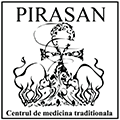Glomerulonephritis is a renal disease manifested as an inflammation of the glomerules (cluster-shaped renal filtration units), which affects the power of the kidneys to filter and to eliminate the excess liquids and the toxic residues in the blood.
Glomerulonephritis may be acute, with a sudden onset and violent manifestations or chronic, with a slow evolution and asymptomatic in particular cases. If it occurs as a disease in itself, it is of primary type. Secondary glomerolunephritis is caused by other diseases such as lupus erythematosus, diabetes mellitus, Hodgkin disease or Goodpasture syndrome, an unusual type of polyarthritis.
Post-streptococcal glomerulonephritis is an unusual type of glomerulonephritis occuring especially in children. The disease occurs following a streptoccocal infection of the pharynx or of the upper airways. Seven to ten days after the infection occur the first symptoms of glomerulonephritis: burning micturition, diminished amounts of eliminated urine, hematuria (presence of blood in urine), or proteinuria (excessive amounts of proteins in the urine, a situation in which the urine is frothy at voiding).
The quick progressive glomerulonephritis is another particular form of glomerulonephritis: the glomerules are destroyed and the kidney functions are affected within several weeks or months. The inflammatory process is accompanied by glomerule necrosis. As symptoms, there are edemas, hematuria, diminished amounts of eliminated urine, difficult breathing, muscle pains, diarrhea, abdominal pains, coughing and high fever.
Untreated, glomerulonephritis causes the kidney blockage, manifested by: nocturia (the need to urinate at night), vascular tenderness (easy bruising and injuring), somnolence, lethargy, chronic fatigue, confusion, nausea, vomiting, major loss of weight, general indisposition, migraines, pruritus (itching), diminished amounts of eliminated urine, muscle spasms and cramps, convulsive fits and coma.
Causes
Among the causes of the primary glomerulonephritis are the following: repeated inappropriately treated or untreated renal diseases (renal infections, renal lithiasis and microlithiasis), certain sexual transmission diseases affecting the urinary tract, too, and certain congenital anomalies.
Treatment
Healing glomerulonephritis requires a complex treatment, as the kidneys hold and maintain the body’s primary energy. Among others, the renal dysfunctions disturb the distribution of the primary energy in the body, energy that remains stuck at renal level. The combined and simultaneous participation of all the organs in a body restore the normal energy flow. The function rate of the organs will be changed in order to provide the kidneys with the energy and the material supply for the process of physical healing and energy release. Although the organs’ rate of function is altered by special acupuncture techniques, the organs will still perform their daily functions. The areas of basal glomerular membrane will be restored and the accumulated toxins and the calcifications built in time are dissolved.

